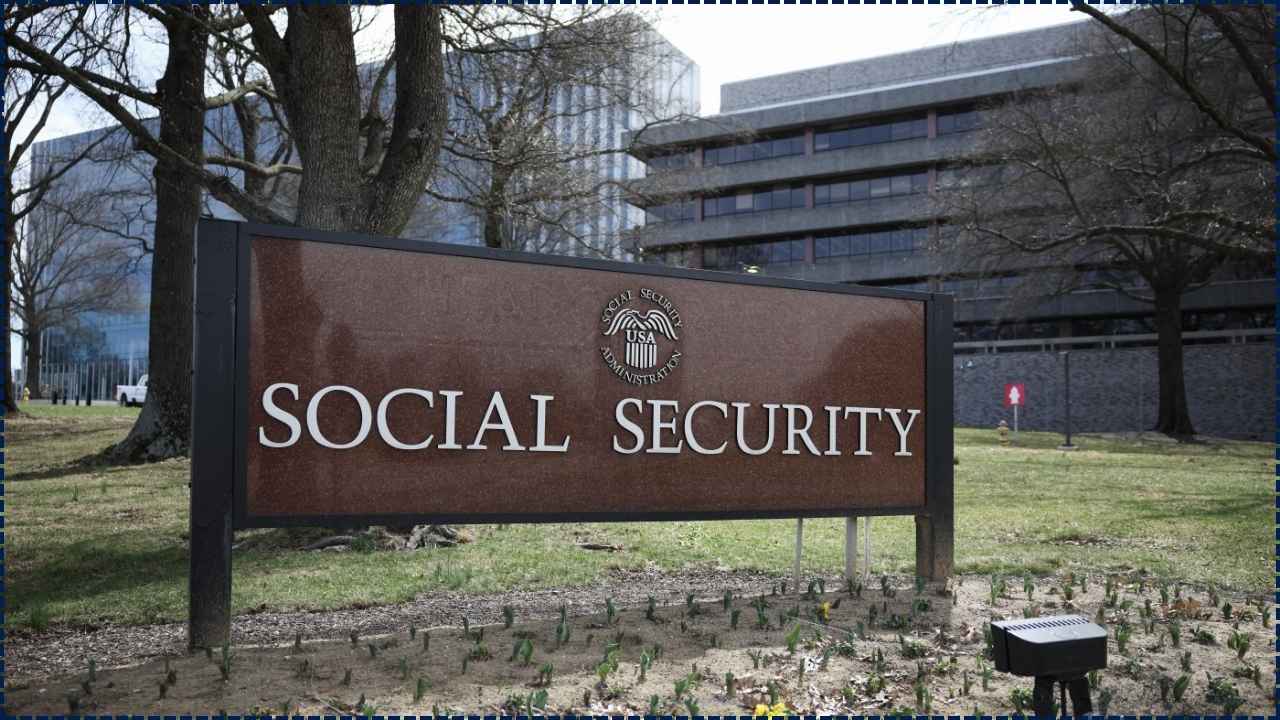Social Security is a vital financial safety net for millions of Americans. Whether you’re nearing retirement, already retired, or planning decades down the road, the recent changes to Social Security rules could affect your benefits, retirement age, and taxes. With new laws and reforms introduced in 2025, now is the time to get informed and make necessary adjustments to your retirement plans. Whether you are directly impacted by these changes or preparing for future adjustments, understanding these shifts will help you plan accordingly.

The Social Security Fairness Act, changes to Full Retirement Age (FRA), new tax deductions, and other updates have made significant impacts on how benefits are structured, and what you need to know about the program. Let’s break down these changes and explain what it all means for your retirement planning.
Social Security Just Changed the Rules
| Change | Details |
|---|---|
| Full Retirement Age (FRA) | FRA for those born in 1960 or later is 67 years. Early retirement at 62 reduces benefits by 30%. |
| Windfall Elimination Provision (WEP) | Repealed by the Social Security Fairness Act; Public sector retirees now receive full benefits. |
| Delayed Retirement Credit | Delaying retirement past FRA increases monthly payments by 8% per year until age 70. |
| Tax Relief for Seniors | The One Big Beautiful Bill Act offers a $6,000 tax deduction for seniors aged 65 and over. |
| Social Security Trust Fund | Projected to be depleted by late 2032, which could lead to a 23% reduction in benefits by 2033. |
| Early Retirement Option | Starting benefits at 62 reduces monthly checks but offers immediate access to funds. |
The changes to Social Security’s retirement age, benefits, and tax rules offer both opportunities and challenges for current and future retirees. With adjustments to Full Retirement Age, the repeal of WEP, and new tax deductions for seniors, there are several ways to maximize your retirement benefits and plan more effectively for the future. However, with the Social Security Trust Fund projected to run out by 2032, it is crucial to stay informed about potential reforms that may affect your benefits down the road.
By planning ahead, staying informed, and utilizing all the options available, you can ensure that your retirement is as secure as possible, even amidst the uncertainty surrounding Social Security.

Understanding the Changes to Social Security
Full Retirement Age (FRA) Adjustments
The Full Retirement Age (FRA) is the age at which you can begin to claim your full Social Security benefits. If you were born in 1960 or later, your FRA is 67. If you choose to claim Social Security before your FRA, you will receive a reduced monthly amount. For example, if you claim at 62 (the earliest age to start receiving benefits), your benefits could be reduced by as much as 30%.
Here’s how the timing works:
- Age 62: You will receive 30% less than your full monthly benefit.
- Age 67 (FRA): You will receive the full benefit amount.
- Age 70: If you wait until age 70 to claim, your monthly benefit will increase by 8% for each year you delay beyond your FRA. For instance, if your full monthly benefit is $2,000, delaying until age 70 could increase it by up to $480 per month.
Windfall Elimination Provision (WEP) Repeal
The Windfall Elimination Provision (WEP) used to affect many public sector workers by reducing their Social Security benefits if they had also worked in a government job that didn’t pay into Social Security. However, the Social Security Fairness Act repealed the WEP starting in 2025, meaning that public sector retirees will now receive their full Social Security benefits without any reductions due to their non-Social Security-covered work.
For public employees who were previously affected by the WEP, this is a huge win. If you have worked in both government and private sectors, you could see your Social Security benefits increase substantially, making a significant impact on your retirement income.
Delayed Retirement Credit
One of the most important options for retirees is the Delayed Retirement Credit. If you are able to wait to claim your Social Security benefits, you can receive an 8% per year increase in your benefits for each year you delay your retirement beyond your Full Retirement Age (FRA), up to age 70.
For example:
- If your monthly benefit is $2,000 at age 67, waiting until 70 to claim would increase your benefit to $2,480—an additional $480 per month.
- This increase could make a huge difference in your financial security, especially if you expect to live many years in retirement.
This option is ideal if you’re in good health and can afford to delay your benefits until age 70. However, if you need the income sooner, starting at 62 is always an option, though it comes with the reduction penalty.
Tax Relief for Seniors: The One Big Beautiful Bill Act (OBBBA)
In response to the growing number of seniors in the workforce and their financial needs, the One Big Beautiful Bill (OBBBA) Act has introduced a $6,000 tax deduction for seniors aged 65 and older. This deduction is designed to help lower-income retirees reduce their tax burden, especially for those who rely heavily on Social Security benefits.
For individuals with a modified adjusted gross income (MAGI) of $75,000 or less, the $6,000 deduction can help reduce their taxable income, potentially making your Social Security benefits non-taxable. This means that you can keep more of your monthly Social Security income, giving you more to spend on health care, living expenses, or other needs.
This tax relief comes with a few stipulations:
- The tax deduction phases out at higher income levels.
- It is available to seniors 65 and older.
- The deduction will be in effect through 2028.
This is a game-changer for many seniors, especially those who rely heavily on Social Security as their primary income source.
The Social Security Trust Fund and Projected Depletion
Despite these positive changes, there is still a looming issue with Social Security’s long-term financial health. The Social Security Trust Fund, which helps pay out benefits, is projected to be depleted by late 2032. If no further reforms are made, this depletion could lead to a 23% reduction in benefits by 2033, meaning recipients would only receive 77% of their scheduled benefits.
This shortfall is due to:
- The aging population drawing more benefits.
- Fewer workers contributing to the program.
- Increased life expectancy, which means people are drawing benefits longer.
While these changes may help address some of the issues, the Social Security Trust Fund still needs significant reform to remain fully funded. Experts suggest increasing payroll taxes, raising the retirement age, or even investing Social Security funds more broadly to address this issue in the long run.
Related Links
Social Security Payments Are Changing — What the New COLA and ‘One Big Beautiful Bill’ Mean for You
Frigidaire Mini Fridges Recalled Over Major Fire Hazard — Check Your Model Now
131,000 Oklahomans at Risk as Historic SNAP Cuts Take Effect — Are You on the List?
What You Can Do to Prepare
Despite the uncertainty surrounding Social Security, there are ways you can prepare for the future:
- Save more for retirement: It’s essential not to rely solely on Social Security benefits. Contribute to a 401(k), IRA, or other investment accounts to build a more robust retirement savings plan.
- Work longer: If you can, consider working past your FRA to increase your Social Security benefits. Delaying your retirement until age 70 can significantly raise your monthly payouts.
- Maximize tax deductions: Take advantage of the $6,000 tax deduction for seniors aged 65+ to reduce your tax burden and maximize your income.
- Stay informed: Monitor any new proposals that may impact Social Security and adjust your financial plans accordingly. Reform could be on the horizon, and staying up to date will help you adapt to any changes.
FAQs
1. What is the Full Retirement Age (FRA)?
The Full Retirement Age (FRA) is the age at which you can claim your full Social Security benefits without any reduction. For those born in 1960 or later, the FRA is 67.
2. How much will my benefits be reduced if I claim early?
If you claim benefits at age 62, your benefits could be reduced by as much as 30% compared to waiting until your FRA of 67.
3. What is the Windfall Elimination Provision (WEP)?
The Windfall Elimination Provision (WEP) was a rule that reduced Social Security benefits for public sector employees who didn’t pay into Social Security.
4. How does delaying my Social Security benefits work?
If you delay your benefits past your Full Retirement Age (FRA), your monthly payments will increase by 8% per year until you reach age 70.
5. What is the One Big Beautiful Bill (OBBBA)?
The One Big Beautiful Bill (OBBBA) Act introduces a $6,000 tax deduction for seniors aged 65+. This deduction can reduce your taxable income.





